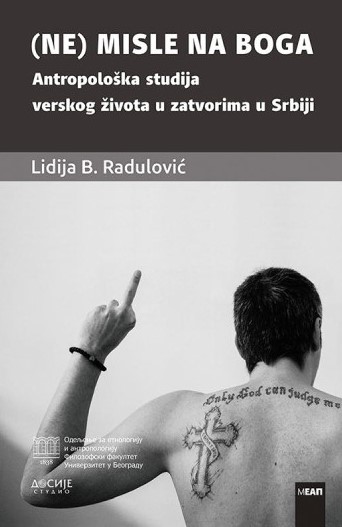On Monday, June 3, 2024, at 12 PM, in the SASA building (Knez Mihailova 36, 1st floor, room 102), professor Lidija Radulović, PhD, (Department of Ethnology and Anthropology, Faculty of Philosophy, University of Belgrade) will give a lecture titled "An Anthropological Study of Religious Life in Prisons in Serbia." The monograph “(Not) Thinking of God: An Anthropological Study of Religious Life in Prisons in Serbia” is the first anthropological monograph that deals with empirical research in Serbian prisons and is also the first monographic study of religious life in prisons in domestic science.
The ethnographic research of everyday religiosity in penal institutions is primarily based on fieldwork in four prison facilities in Serbia: the District Prison in Belgrade (better known as Central Prison), the Prison Hospital in Belgrade, the Women's Penal Correctional Facility in Požarevac, and the Zabela Penal Correctional Facility. The emphasis of the lecture will be on the diverse religious (un)commitment, meanings, and significance that prisoners attach to religious and spiritual practices as daily activities, shaping what is known as "lived religion" in specific circumstances. The theoretical concepts of religious experience and conversion are particularly significant for understanding the prisoners' relationship to religion and the intersection of the identities of prisoners and believers (intersectionality of identities). The lecture will also address the specificities of conducting field research in prisons as total institutions, the application of an integrated methodological approach, specifically how primary qualitative research was supplemented by quantitative research, in order to gather data on religiosity and religious practices in prisons that are not well-known to the academic community, unlike in the general population. Quantitative data were obtained through written questionnaires, while qualitative data were collected through interviews with prisoners, clergy, treatment heads, informal conversations with prison staff, analysis of individual prisoners' personal files, and a research diary.
